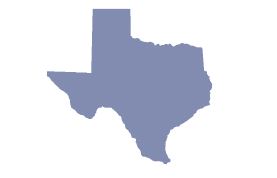More Accurate Price Tags on Legislation Would Enhance Responsible Fiscal Stewardship
Every piece of legislation brought before Idaho lawmakers comes with a price tag. Called “fiscal notes,” these help legislators and the public understand how our dollars are being invested and conserved. Incorrect, incomplete, or misleading notes can lead to fiscal problems that interfere with achieving the state’s policy goals. In some cases, fiscal notes can underestimate or omit the long-term cost of a tax change. This is especially true because a tax change or new program will often increase in cost in future years.
Effective, accountable government requires that legislation be accurately assessed for its cost and long-term impact on our state’s ability to raise revenue for our policy priorities. Idaho has a strong foundation in place to account for the reliability of fiscal notes. With further reforms, we can do even more to eliminate the threat of short-sighted choices brought on by incorrect, incomplete, or misleading fiscal notes.
The Important Role of Fiscal Notes in Policymaking
This paper reviews current fiscal note requirements, presents a review of a sample of fiscal notes from the 2016 Legislative Session, and discusses possible next steps for the state. The following simple and substantial improvements would ensure Idaho’s legislators have the information they need on every bill to make wise choices for the state:
• Require fiscal notes to show at least four years of impact;
• Enable legislators to work with the Legislative Services Office to review fiscal notes when there are questions about accuracy and integrity; and
• Place fiscal note requirements in statute, rather than in a joint rule, to ensure accountability.
Joint Rule 18 and Insights from the 2016 Legislative Session1
Joint Rule 18 is the Idaho Legislature’s general guideline for preparing fiscal notes on legislation. It states that the bill sponsor is responsible for the fiscal note. State legislators and agency staff author the majority of notes. The information used in the notes can be prepared by any source and the source is not required to be identified. All bills introduced must include a “concise statement of purpose” (i.e. a summary of what the bill aims to achieve) and a fiscal note that:
• Assesses the bill’s budgetary impact or revenue impact, either to state or local government;
• Provides the estimated impact for one full fiscal year; and
• Identifies the contact person.
Joint Rule 18 guidelines also establish that the relevant legislative committee is responsible for reviewing the quality of fiscal notes and that a lack of fiscal impact must also be discussed when there is presumably no cost involved. Though this rule provides a starting point for quality fiscal notes, these guidelines are not strictly followed and there is no binding enforcement for preparing quality fiscal notes.
The Idaho Center for Fiscal Policy (ICFP) studied a sample of bills from the 2016 Legislative Session to determine how well they met the Joint Rule 18 standard. Because approximately 550 bills are introduced each year, ICFP focused on a group of those that had a fiscal impact to the General Fund and passed both legislative chambers, or otherwise had strong momentum.
Of the 47 bills reviewed by ICFP, all appeared to meet the three Joint Rule 18 criteria. However, three-quarters did not address the financial impact on local government of proposed legislation. While this is not a requirement of the rule, attention to local government is suggested. In Idaho, where revenue-sharing and cooperation binds local governments to decisions at the state level in complex ways, this aspect of fiscal impact is an important consideration.
Idaho’s Strong Fiscal Notes Foundation
Idaho has implemented two of the established best practices for fiscal notes. For example, Idaho practices include:2
- Preparing Fiscal Notes for All Proposals: Idaho is one of 38 states requiring that legislators have access to information that will help them effectively and efficiently allocate public funds.
- Publishing Fiscal Impact Information Online: Idaho is among 45 states that make their fiscal notes publicly accessible online.
Promising Practices in Idaho’s Fiscal Note Pilot Project
The Idaho Legislature will implement a fiscal note pilot project in the 2017 Legislative Session in conjunction with the Legislative Services Office (LSO), the research arm of the legislature. This voluntary pilot will give lawmakers – who are responsible for fiscal notes – the opportunity to work intentionally with LSO’s expert budgeting staff to develop information for use in a fiscal note that adheres to the standards in Joint Rule 18.
LSO analysts tasked by a lawmaker to complete a fiscal note will:
• Use the draft bill in order to prepare the note;
• Prepare an analysis that complies fully with Joint Rule 18, describes underlying assumptions and methodology in the analysis, and identifies data sources; and
• Discuss relevant data and analytic limitations.
Under this pilot, LSO will maintain careful practices in order to ensure confidentiality and neutrality in collecting information from agencies for the analysis. LSO will not prepare challenges to fiscal notes from other sources. The pilot program is expected to better facilitate the gathering of reliable information for fiscal notes, better organize collaboration between lawmakers and LSO analysts, and serve as a tool for newer lawmakers to participate in policymaking.
 A Case Study From Texas
A Case Study From Texas
During Texas’ 2015 Legislative Session, a proposal was made to make tax credits readily available to businesses that create a certain number of jobs. The value of the existing credit did not change, but the threshold number of jobs required to be eligible to receive the credit was lowered. These costs were estimated to be $509,000 in the first fiscal year and more than $2.2 million in the second.
Texas’ Legislative Budget Board3 was called on to assess a longer term impact and subsequently provided 10 years of impact analysis. It found that in the tenth year the program would cost the state government a whopping $97.3 million more than in the second year of the original two-year fiscal note. The assessment also found that revenue loss to local school districts would top $91 million in the tenth year, up from $0 in the first year and $7.4 million in the second. With a much clearer understanding of the long-term costs, Texas opted not to enact the legislation.
While a quality fiscal note may stall legislation that proves too costly, it can also help lawmakers rework a bill to achieve passage. Again, Texas provides an instructive example. A 2013 bill proposed to establish a sales and use tax exemption for cable, internet, and telecommunications equipment, at a cost in the first year of $413 million. By the fifth year, the cost to the state would have risen to $538 million and local units of government would have lost a combined $150 million annually. In light of this information, the committee responsible for the bill decided the costs were too high and would grow too quickly. A substitute bill was proposed, with a consistent annual effect of $50 million with no cost to local governments.4
A Case Study From Alaska
In Alaska, lawmakers and legislative staff saw improvement in the quality of their fiscal notes in 2010 after adopting an electronic system for preparing and reviewing them. The electronic system increases the efficiency of the review process. Legislative Finance Division agency analysts are able to complete a high quality review of notes (which are authored by agency staff, lawmakers, and others) within a short amount of time when they are nearing a critical juncture, such as a finance committee hearing.
The electronic system has allowed analysts to crosscheck fiscal notes based on completeness criteria that include five-year impact projections, the funding source, and explanation of the data used. It has also made the workload manageable for a staff of six analysts without requiring an increase in personnel. The automated tracking system helps staff organize and execute revisions on fiscal notes that occur when a bill changes and allows legislation to flow into the budget process seamlessly.
The result, according to legislative staff in Alaska, has been to elevate policymaking discussions and make the budgeting process stronger.5
Looking Beyond Joint Rule 18
There is more that can be done. The reforms proposed, which have been adopted by other states, would work in several ways to create even better and more fiscally responsible budgeting practices in Idaho:
1. Allow a fiscal note review by LSO when notes are challenged: Accuracy and accountability are critical to whether fiscal notes can be trusted. Legislators often raise questions as part of their due diligence when considering and debating legislation. LSO already assists legislators in crafting sound fiscal notes and is testing its capacity for additional support via the fiscal notes pilot program. Having legislators’ concerns addressed by LSO’s independent analysts (who may consult experts at the Tax Commission, Division of Financial Management, and other agencies) will mean legislative decision-making is supported by the most rigorous analysis available and insulated from political pressures. The majority of states (33) use a nonpartisan entity to prepare fiscal notes.
2. Estimate and report on at least four years of impact: Idaho’s fiscal notes generally provide only one year of analysis, which is the standard described in Joint Rule 18. This can substantially misrepresent the true costs of many proposals considered by the legislature. By providing analysis of at least four years of impact, legislators can more accurately understand the shorter and longer-term effects of each proposal. There is a trend toward using this long-term perspective in other states. The majority of states (27) consistently project more than one year of impact, with 12 of those consistently projecting at least four years’ impact in their fiscal notes.
3. Revise estimates as needed: Legislation often changes between introduction and when a final vote occurs. Bills can be amended or modified, affecting the accuracy and integrity of the original fiscal note. Though revisions occur to fiscal notes, they are optional according to Idaho’s rule, and the state is not among those that revise fiscal notes at a key point in the legislative process such as: after amendments are adopted, when a bill is reported out of committee, or at the referral to the Joint Finance and Appropriations Committee.
4. Require local government impact: Some states regularly include the impact of proposed legislation on local government finances. Some of Idaho’s unique governance features, such as general fund revenue-sharing and other transfers to local government, should make it a requirement to include an assessment of local government impact, even beyond proposals with direct property tax implications.
Without these improvements, legislators may lack pertinent information when making long-term decisions that could diminish the sustainability of Idaho’s policy priorities and lead to unexpected costs to the General Fund.
Footnotes
1. Idaho Legislative Services Office, 2014. Retrieved from http://legislature.idaho.gov/about/jointrules.htm
2. McNichol, E., Lav, I. J., & Masterson, K., 2015. Better Cost Estimates, Better Budgets. Retrieved January 27, 2016, from http://www.cbpp.org/research/state-budget-and-tax/better-cost-estimates-better-budgets
3. Texas Legislative Budget Board, 2015. Fiscal Note, Texas House Bill 1250, http://www.legis.state.tx.us/tlodocs/84R/fiscalnotes/html/HB01250H.htm
4. McNichol, E., Lav, I. J., & Masterson, K., 2015. Better Cost Estimates, Better Budgets. Retrieved January 27, 2016, from http://www.cbpp.org/research/state-budget-and-tax/better-cost-estimates-better-budgets
5. Staff of the Alaska Division of Legislative Finance
Click here to find the printable PDF version of this fact sheet


